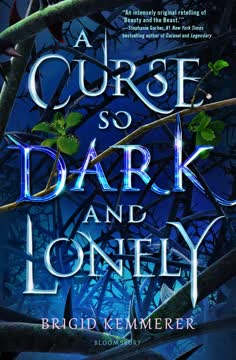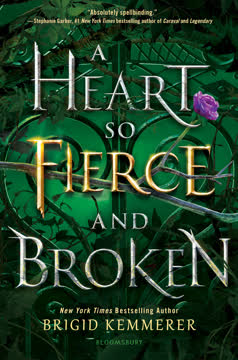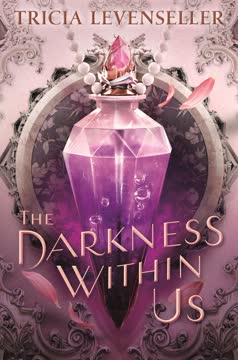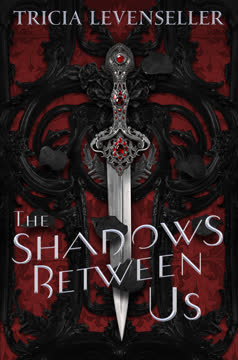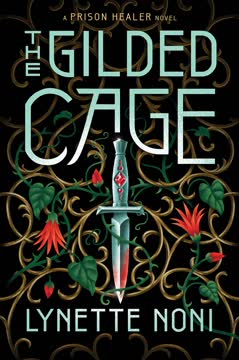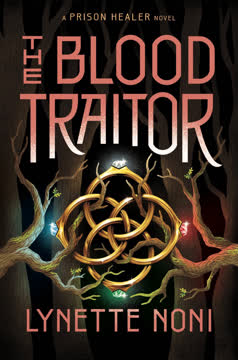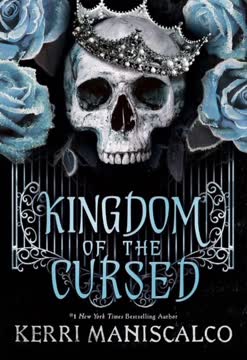Plot Summary
Fractured Kingdoms, Fractured Hearts
The story opens with Emberfall and Syhl Shallow on the brink of war, their fragile truce fraying. Rhen, haunted by past trauma and the threat of magic, rules Emberfall with a heavy hand, while Grey, now revealed as Rhen's brother and the true heir, struggles to unite Syhl Shallow under Lia Mara's gentler rule. Harper, torn between loyalty and love, feels the sting of old wounds and new betrayals. The characters are isolated by secrets, guilt, and the scars of violence, each questioning their place in a world where alliances shift and trust is a rare commodity. The emotional landscape is as fractured as the political one, setting the stage for a story where every relationship is tested by the looming threat of war and the ghosts of the past.
Shadows of War Loom
As the sixty-day truce nears its end, both kingdoms prepare for battle. Rhen, pressured by his people and haunted by the enchantress Lilith, readies his forces, even as his heart aches for Harper and his lost friendship with Grey. Grey, meanwhile, faces suspicion and resistance in Syhl Shallow, where his magic is both a weapon and a curse. Lia Mara's compassionate leadership is undermined by her own people's thirst for strength and vengeance. The threat of open conflict hangs over every interaction, and the characters are forced to confront the reality that war may be the only way to secure peace. The tension is palpable, and the emotional stakes rise as each leader must decide what they are willing to sacrifice for their people—and for those they love.
Wounds That Won't Heal
The personal wounds between Rhen and Grey, and between Rhen and Harper, fester beneath the surface. Rhen's guilt over his treatment of Grey and Tycho, and Harper's anger at Rhen's choices, create a gulf that seems impossible to bridge. Grey, too, is haunted by the violence he endured and the violence he may be forced to inflict. Lia Mara, struggling to rule with empathy, finds herself doubting her own strength as queen. The characters' internal battles mirror the external conflict, and the question of whether wounds can ever truly heal—whether between individuals or nations—becomes central. The emotional weight of past betrayals and the longing for forgiveness drive the characters toward moments of vulnerability and, ultimately, the possibility of reconciliation.
The Weight of Crowns
Rhen and Lia Mara both feel the crushing responsibility of rule. Rhen is isolated by his secrets and the fear that he is losing his people's loyalty, while Lia Mara is undermined by her sister and advisors who see her compassion as weakness. Grey, caught between two kingdoms and two identities, must decide where his loyalty truly lies. The demands of leadership force each character to make impossible choices, often at the expense of personal happiness. The loneliness of power is palpable, and the story explores how the weight of a crown can both elevate and destroy those who wear it. The struggle to balance duty and desire, strength and mercy, becomes a defining challenge for each ruler.
Allies, Enemies, and Betrayals
As the threat of war intensifies, old alliances are strained and new betrayals come to light. Harper's friendship with Zo is tested by political realities, and Grey's relationship with his soldiers is undermined by suspicion and resentment. Rhen's reliance on spies and mercenaries leads to dangerous secrets, while Lia Mara's trust in her advisors is shaken by acts of violence and insubordination. The lines between friend and foe blur, and the characters must navigate a world where betrayal can come from any quarter. The emotional cost of these shifting loyalties is high, and the story delves into the pain of realizing that those closest to you may not be who you thought.
The Dance of Power
Rhen hosts a grand gathering of his marshals, hoping to project strength and unity, but the event quickly devolves into a public display of discord and mistrust. Harper, feeling like a pawn in Rhen's political games, rebels against being used as a symbol rather than a partner. The dance floor becomes a battleground for their unresolved anger and longing, culminating in a confrontation that exposes the deep rifts between them. The spectacle of power is revealed as a fragile facade, masking the private pain and uncertainty of those who wield it. The chapter explores how public displays of strength can often hide, rather than resolve, the true conflicts at the heart of leadership.
Secrets in the Shadows
Secrets abound as Rhen bargains with a mercenary spy for information and a magical weapon, hoping to gain an edge over both Grey and Lilith. Harper, feeling isolated and mistrusted, contemplates leaving but is held back by her sense of duty and unresolved feelings for Rhen. In Syhl Shallow, Lia Mara faces assassination attempts and the growing threat of a faction opposed to magic. Grey, meanwhile, struggles to unite his soldiers and earn their respect, even as he is haunted by the knowledge that his own magic may be both a blessing and a curse. The shadows are full of danger, and the characters must decide whom they can trust—and what they are willing to risk to protect those they love.
The Enchantress Returns
Lilith, the enchantress who cursed Rhen and Grey, returns with renewed power and a vendetta against both kingdoms. Her presence reignites old fears and traumas, and her manipulations threaten to unravel the fragile peace. Rhen is tormented by her threats against Harper and his people, while Grey fears that his magic will never be enough to stop her. Lilith's cruelty is matched only by her cunning, and she exploits every weakness she can find. The characters are forced to confront the darkest parts of themselves and their histories, as Lilith's return makes clear that the true battle is not just for kingdoms, but for their very souls.
A Queen's Doubt
Lia Mara's rule is threatened from within as her sister and advisors undermine her authority and question her methods. The assassination attempts and the rise of anti-magic factions force her to reconsider what it means to be a strong leader. She must decide whether to rule with fear or with hope, and whether compassion can truly be a source of strength. The chapter explores the challenges of female leadership in a world that equates brutality with power, and the courage it takes to stand by one's principles in the face of overwhelming opposition. Lia Mara's journey becomes a meditation on the true nature of strength and the cost of mercy.
Magic and Mistrust
Grey's magic, once a source of hope, becomes a point of contention and fear among his soldiers and the people of Syhl Shallow. The distrust of magic mirrors the larger mistrust between kingdoms, and even within families and friendships. Tycho, caught between admiration and fear, embodies the struggle to reconcile the promise and peril of power. The chapter delves into the ways that fear can be manipulated by those in power, and how the very gifts that could unite people are often the ones that drive them apart. The quest for unity is complicated by suspicion, and the characters must find a way to bridge the gap between what they are and what others believe them to be.
The Cost of Mercy
Acts of mercy—whether sparing an enemy, refusing to retaliate, or seeking peace—are repeatedly mistaken for weakness by those who equate strength with violence. Lia Mara's refusal to order brutal punishments, Grey's decision to spare defeated soldiers, and Rhen's reluctance to spill blood all come under fire from those who would rather see decisive, ruthless action. The cost of mercy is high, and the characters must grapple with the consequences of their choices. The chapter asks whether it is possible to be both merciful and strong, and whether the world can ever change if those in power are unwilling to break the cycle of violence.
Lines Drawn in Blood
As the armies of Emberfall and Syhl Shallow move into position, betrayals come to light and the first blood is drawn. Spies and double agents manipulate events from the shadows, and the characters are forced to confront the reality that war is no longer a distant threat, but a present and personal danger. The lines between right and wrong, friend and enemy, become increasingly blurred, and the cost of every decision is measured in lives lost and trust broken. The chapter is a turning point, as the story moves from the threat of war to its brutal reality.
The Burden of Leadership
The demands of leadership become almost unbearable as Rhen, Grey, and Lia Mara are each forced to make sacrifices that cut to the core of who they are. The loneliness of command is matched only by the fear of making the wrong choice, and the weight of responsibility threatens to crush them. Yet, even in the darkest moments, hope flickers—a hope that forgiveness is possible, that peace can be achieved, and that love can survive even the most terrible trials. The chapter is a meditation on the cost of leadership and the resilience of the human spirit.
Factions and Fractures
The threat to peace is not only external; within both kingdoms, factions and traitors work to undermine the fragile alliances. In Syhl Shallow, anti-magic conspirators plot against Lia Mara and Grey, while in Emberfall, Rhen's authority is challenged by those who see him as weak or illegitimate. The discovery of a trusted advisor's betrayal shakes Lia Mara to her core, and the realization that enemies can hide in plain sight forces the characters to question everyone and everything. The fractures within threaten to be as deadly as the enemies without, and the struggle for unity becomes more urgent than ever.
The Price of Peace
The final confrontation with Lilith brings all the characters together in a desperate bid to end the cycle of violence and pain. Rhen, Grey, and Harper must each face their deepest fears and make the ultimate sacrifice for the good of all. The battle is brutal and costly, but in the end, it is not strength or magic that wins the day, but the willingness to forgive, to yield, and to trust. The price of peace is high, but it is paid in full, and the kingdoms are left forever changed by the choices made in the heat of battle.
The Monster Within
In the climactic battle, Rhen is once again transformed into a monster, forced to confront the darkest parts of himself. Grey, Harper, and the others must decide whether to fear him or to trust in his humanity. The struggle is not only against Lilith, but against the monsters within each character—the fear, the anger, the guilt, and the longing for redemption. The chapter is a powerful exploration of what it means to be human, and the possibility of finding forgiveness and acceptance even after the worst of betrayals.
Yielding to Forgiveness
With Lilith defeated and the war ended, the characters are left to pick up the pieces of their shattered lives and kingdoms. Rhen, no longer king, must find a new purpose; Grey, now ruler, must learn to lead with both strength and compassion; Lia Mara, finally secure in her role, must balance love and duty; and Harper, having found her place, must decide what she wants for her future. The journey toward forgiveness—of others and of themselves—is not easy, but it is the only path forward. The chapter is a testament to the power of letting go and the hope that comes with new beginnings.
A New Dawn Rising
The story ends with the kingdoms united in a fragile but genuine peace. Old wounds begin to heal, and the promise of a better future glimmers on the horizon. Rhen and Grey, once enemies, find brotherhood; Lia Mara and Grey look forward to a family of their own; Harper and Rhen discover that love can survive even the greatest trials. The dawn of a new era rises over Emberfall and Syhl Shallow, and while challenges remain, the characters face them with hope, courage, and the hard-won wisdom that comes from surviving the darkness together.
Characters
Rhen
Rhen, the former crown prince of Emberfall, is a man shaped by trauma, duty, and the scars of both physical and emotional violence. His relationship with magic is fraught with fear, stemming from the curse that once turned him into a monster and the manipulations of the enchantress Lilith. Rhen's love for Harper is deep but complicated by his guilt over past actions, especially his treatment of Grey and Tycho. As his authority is challenged and his kingdom fractures, Rhen is forced to confront his own capacity for cruelty and mercy. His journey is one of self-forgiveness, learning to yield, and ultimately finding purpose beyond the crown. His bond with Grey, once broken, becomes a path to healing and brotherhood.
Grey
Grey, once Rhen's loyal guard and now revealed as his brother and the true heir, is a study in contrasts: stoic yet deeply feeling, powerful yet humble, feared for his magic yet desperate to use it for good. His sense of duty is unwavering, but he is haunted by the violence he has endured and inflicted. Grey's relationship with Lia Mara is a source of strength and vulnerability, challenging him to lead with compassion in a world that values brutality. His struggle to unite Syhl Shallow's army and earn their trust mirrors his internal battle to accept his own power and worth. Grey's arc is one of transformation—from weapon to leader, from outcast to king, from brother in arms to brother in truth.
Harper
Harper, the "Princess of Disi," is defined by resilience, empathy, and a refusal to be anyone's pawn. Her cerebral palsy is both a challenge and a source of strength, shaping her determination to fight for herself and others. Torn between Rhen and Grey, between love and loyalty, Harper is often the moral compass of the story, advocating for mercy and understanding even when it is costly. Her journey is one of self-acceptance, learning to ask for help, and finding her own place in a world that often underestimates her. Harper's courage in the face of trauma and her willingness to forgive are central to the healing of both kingdoms.
Lia Mara
Lia Mara, queen of Syhl Shallow, is a leader who values empathy over fear, mercy over violence. Her rule is constantly undermined by her sister, her advisors, and the legacy of her brutal mother. Lia Mara's relationship with Grey is both a source of solace and a political liability, as her people distrust magic and male leadership. She is plagued by self-doubt but refuses to abandon her principles, even when pressured to rule with an iron fist. Lia Mara's arc is one of growing into her own strength, redefining what it means to be a powerful woman, and forging a new path for her kingdom—one that values hope over hatred.
Lilith
Lilith is the story's primary antagonist, a master manipulator whose cruelty is matched only by her cunning. Her vendetta against Rhen and Emberfall is rooted in ancient wrongs, and she uses magic to exploit every weakness she finds. Lilith is both a literal and symbolic representation of trauma, forcing the characters to confront their darkest fears and the parts of themselves they most wish to hide. Her defeat is not just a physical victory, but a triumph over the cycles of pain and violence she perpetuates. Lilith's presence lingers even after her death, a reminder of the cost of hatred and the difficulty of healing.
Tycho
Tycho, once a stable boy and now a young soldier, represents the hope and vulnerability of the next generation. His unwavering loyalty to Grey and his struggle to reconcile the violence of war with his own gentle nature make him a poignant figure. Tycho's journey is one of coming of age in a world that demands both courage and compassion. His relationship with Grey is almost filial, and his presence often serves as a moral anchor for the older, more jaded characters. Tycho's survival and growth are a testament to the possibility of innocence enduring even in the darkest times.
Zo
Zo, once Harper's guard and now her closest friend, is a figure of quiet strength and fierce loyalty. Her willingness to risk everything for Harper, even at the cost of her own position, speaks to the depth of her devotion. Zo's journey is one of navigating the blurred lines between duty and friendship, and her presence is a constant reminder that true loyalty is earned, not commanded. Her fate is intertwined with the story's themes of sacrifice and the cost of standing by those you love.
Nolla Verin
Nolla Verin, Lia Mara's younger sister, embodies the old ways of Syhl Shallow: strength through violence, power through fear. Her constant undermining of Lia Mara's rule and her willingness to resort to brutality highlight the challenges of changing a culture steeped in bloodshed. Nolla Verin is both a rival and a mirror for Lia Mara, forcing her to define her own leadership on her own terms. Her arc is one of learning to respect, if not fully embrace, a new vision for their kingdom.
Iisak
Iisak, the scraver king, serves as a mentor to Grey and Tycho, guiding them in the use of magic and the responsibilities of power. His own losses—his son, his throne—make him a figure of both wisdom and sorrow. Iisak's death is a turning point, underscoring the cost of the battle against Lilith and the importance of legacy. His relationship with Grey is paternal, and his final act of sacrifice is a testament to the story's themes of loyalty and the enduring bonds of chosen family.
Jamison
Jamison, a soldier who lost his arm in the wars, represents the ordinary people caught in the crossfire of great events. His loyalty to Rhen and his growing relationship with Freya add depth to the story's exploration of love and loss. Jamison's presence is a reminder that the consequences of war are felt most keenly by those with the least power, and his survival is a quiet victory in a world full of tragedy.
Plot Devices
Dual Narratives and Shifting Perspectives
The novel employs a rotating cast of first-person narrators—Rhen, Grey, Harper, and Lia Mara—each offering a unique lens on the unfolding events. This structure allows the reader to experience the same conflicts from opposing sides, heightening both empathy and suspense. The shifting perspectives also serve to reveal secrets, misunderstandings, and the internal struggles that drive each character's choices. The result is a tapestry of motivations and emotions that makes every alliance and betrayal feel personal and inevitable.
Magic as Both Blessing and Curse
Magic in the story is not simply a tool or weapon; it is a source of both hope and terror. For Rhen, it is a reminder of his curse and the violence he was forced to commit; for Grey, it is a gift that isolates him from those he wishes to protect. The fear and mistrust of magic mirror the larger societal divisions, and the struggle to control or accept magic becomes a metaphor for the struggle to heal from trauma and to accept one's own power. The magical dagger, impervious to magic, is a key plot device that represents the possibility of overcoming even the most entrenched fears.
Foreshadowing and Parallels
The novel is rich in foreshadowing, with early betrayals, conversations, and choices setting the stage for later revelations and confrontations. The parallels between Rhen and Grey's journeys, between Lia Mara and Nolla Verin's leadership styles, and between the personal and political conflicts, create a sense of inevitability and resonance. The story's structure ensures that every decision has consequences, and that the past is never truly past.
The Enchantress as Catalyst and Mirror
Lilith's return is the inciting incident that forces every character to confront their deepest fears and desires. Her manipulations and cruelty are not just external threats, but catalysts that bring hidden wounds to the surface. She serves as a mirror for the characters' own capacity for violence, vengeance, and forgiveness, and her defeat is as much an internal victory as an external one.
The Cycle of Violence and the Possibility of Peace
The story repeatedly explores the idea that cycles of violence—whether personal, familial, or political—are difficult to break. Acts of mercy are often mistaken for weakness, and the temptation to retaliate is ever-present. Yet, the novel ultimately argues that peace is possible, but only at great cost and through the willingness to forgive, to yield, and to trust. The final scenes, in which former enemies become allies and brothers, are the culmination of this hard-won lesson.
Analysis
A Vow So Bold and Deadly is a powerful meditation on the costs of leadership, the scars of trauma, and the possibility of redemption. Through its complex, deeply human characters, the novel explores how cycles of violence and mistrust can fracture both kingdoms and hearts, and how the path to peace is never easy or straightforward. The story refuses to offer easy answers: mercy is costly, forgiveness is hard, and even the most heroic acts are tinged with regret and doubt. Yet, the novel is ultimately hopeful, arguing that true strength lies not in brutality, but in the courage to yield, to trust, and to love. The defeat of Lilith is not just the end of a curse, but the beginning of a new era—one in which old wounds can begin to heal, and the future is shaped not by fear, but by the hard-won wisdom of those who have survived the darkness together. In a world where power is so often equated with violence, A Vow So Bold and Deadly dares to suggest that the greatest power of all is the willingness to forgive—and to begin again.
Last updated:
Review Summary
A Vow So Bold and Deadly received mixed reviews from readers. Many found it disappointing compared to the previous books, citing issues with character development, pacing, and an unsatisfying ending. Some readers enjoyed the return to familiar characters and appreciated the complex relationships. However, others felt the plot was weak and lacked excitement. The book's handling of themes like forgiveness and leadership drew both praise and criticism. While some found the conclusion realistic, many wished for a more satisfying resolution for beloved characters.

